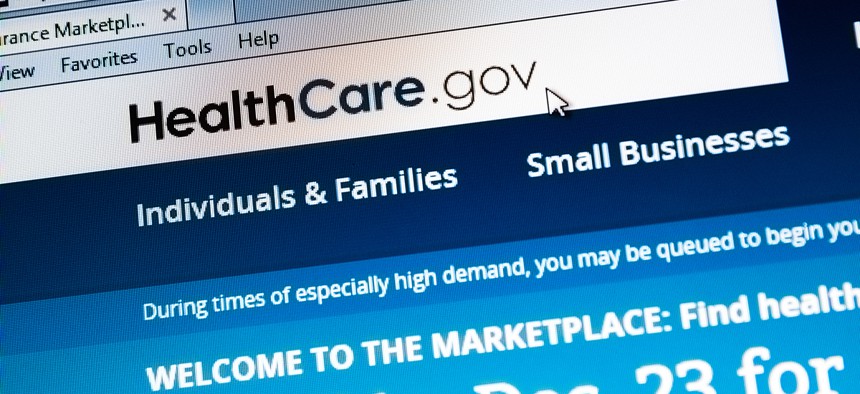
txking / Shutterstock.com
CBO Estimate: Repealing Obamacare Would Leave 19 Million Uninsured; Raise Federal Deficit
The Congressional Budget Office released a new report on the effects of repealing the Affordable Care Act.
Repealing the Affordable Care Act would increase the federal deficit by $137 billion or more over the next 10 years and would increase the number of uninsured Americans by 19 million in 2016, according to a new report from the Congressional Budget Office.
The projections are the first official score of full Obamacare repeal since 2012 and come as the Supreme Court weighs the King v. Burwell case, which could substantially hinder the health care law by limiting federal subsidies in 34 states. Some congressional Republicans have advocated repealing the law if the Court rules as they hope it does; such a decision would invalidate the law's subsidies for more than 6 million people, putting their health insurance at risk.
Should Obamacare be repealed, CBO estimates that 20 million would lose insurance when Obamacare's exchanges close and 8 million would lose Medicaid coverage. But about 6 million people would pick up employer coverage and 4 million would buy individual plans, leaving a net effect of 19 million people losing insurance.
The impact increases in later years, with about 50 million nonelderly Americans being uninsured starting in 2020 and onward. CBO estimated earlier this year that there are 35 million uninsured Americans in 2015 and the number would drop to 24 million by 2020 under the ACA.
The new CBO score assumes that the ACA's repeal would take effect on January 1, 2016, but does not account for any alternative health care policy being passed in its place. The estimates are also the first since Republicans took over Congress and installed a new CBO director, Keith Hall, a veteran of the George W. Bush administration. The CBO has also begun to incorporate so-called "dynamic scoring," which tries to measure the larger economic effects of the policy changes the agency is evaluating.
Using dynamic scoring, CBO estimated that the federal deficit would increase by $137 billion over the next 10 years. The agency projected that the largest economic effect would be more people working and therefore more taxable income, which would help offset the increase to the deficit. Repealing some of the law's taxes would also increase incentives to save and invest, CBO said, which would lead to a greater economic output.
The agency did acknowledge that dynamic scoring is highly uncertain. Without it, the estimate deficit increase would be $353 billion. In both cases, the deficit would initially dip after repeal before increasing in the later years.
Those are both higher numbers than the 2012 estimate, which projected a $109 billion rise in the deficit from 2013 to 2022.
"Most of the difference between that earlier estimate and the current one stems from a shift in the budget window to encompass later years—in which repealing the ACA is estimated to increase budget deficits sharply," the CBO explained.
The agency also emphasized that the overall effect is difficult to project, giving the complexity of the law and the difficulty projecting economic effects so far into the future.
(Image via )






